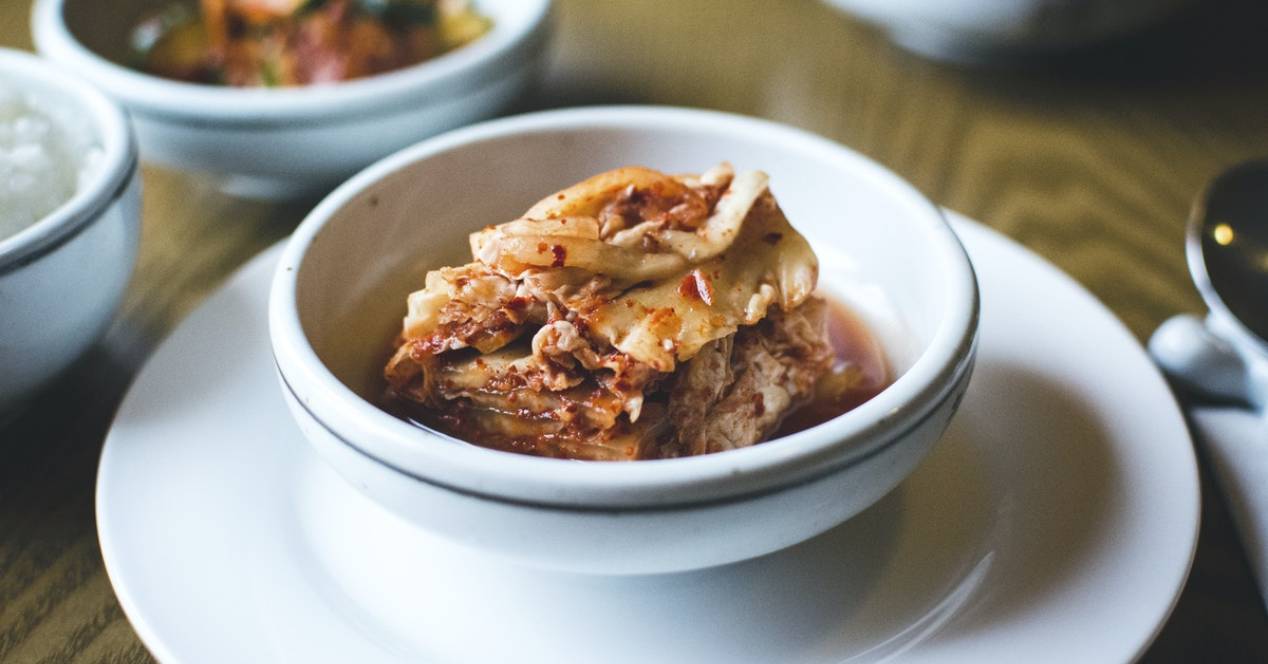
There is no cure for psoriasis, a chronic immune system-related condition that causes red, scaly patches on the skin. But medications and lifestyle adjustments, including diet, can help alleviate symptoms and reduce flare-ups.
Much is unknown about this condition: Experts don't know why people get it, although genetics may play a role, or even why flare-ups occur. What is known is that the immune system plays an important role in psoriasis; the condition activates the body's inflammatory response.
How does it affect the immune system?
Psoriasis is considered an excessive immune response that goes unchecked. As a result of the overreaction of the immune system, skin cells begin to grow at an extremely rapid rate, 10 to 20 times faster than normal. Although skin cells normally have a turnover rate of 28 to 40 days, with psoriasis, that rate accelerates to every two to three days, causing the excessive buildup of layers of skin that is seen with the condition.
La inflammation It can also affect other areas of the body outside of the skin, such as joints and other organs. This swelling is part of your body's biological response to infection or injury. During this process and response, which can be immediate, like cutting your finger, or chronic and low-grade, the tissues release chemicals that tell the body to start healing and repairing itself.
Anti-inflammatory foods are foods that can slow or stop this response. Since many people with psoriasis also have insulin resistance and therefore a higher chance of developing type 2 diabetes, healthy diet choices that include anti-inflammatory foods may also help decrease the risk of further problems.
Foods that can improve psoriasis
Since psoriasis is an inflammatory process, you should try to incorporate as many anti-inflammatory foods into your diet as possible.
Fruits and vegetables
Try to eat a wide variety of fruits and vegetables. The more colorful they can be, the more anti-inflammatory properties they have. This is due to plant compounds called phytochemicals, that fight inflammation. Your favorites include celery, leeks, onions, garlic, and artichokes.
Almost all anti-inflammatory diets include fruits and vegetables. These foods are high in antioxidants, which are compounds that decrease oxidative stress and inflammation. A diet rich in fruits and vegetables is recommended for inflammatory conditions such as psoriasis.
Recommended foods can be:
- Broccoli, Cauliflower, and Brussels Sprouts
- Leafy green vegetables, such as kale, spinach, and arugula
- Berries, including blueberries, strawberries, and raspberries
- Cherries, grapes and other dark fruits
Foods rich in antioxidants
Also include foods high in antioxidants in your diet.
Antioxidants help neutralize free radicals, which can cause cell damage and can lead to increased risk of certain health conditions. And antioxidant-rich foods have been shown to help reverse some of the effects of inflammation in the body, according to an October 2016 review in the Oxidative Medicine and Cellular Longevity Journal.
Some foods rich in antioxidants are:
- Berries
- Grapes
- Green leafy vegetables
- Cruciferous vegetables like broccoli and kale
- Citrus fruits
- Dark chocolate

Foods rich in probiotics
Probiotics, which are good-for-you bacteria found in your gut, can help cultivate a healthy microbiome. And, the health of your gut could affect your skin, according to a November 2019 review examining the link between gut bacteria and psoriasis inflammation published in the Journal of Family Medicine and Primary Care.
Adding probiotics to your diet is not much of a challenge: the yogurt is rich in probiotics, just like fermented foods like sauerkraut, la Kombucha and kimchi. You can also take probiotics as supplements.
Turmeric for psoriasis
This spice may be helpful with inflammatory conditions, such as psoriasis.
Although more research is needed, turmeric has shown promising results as a treatment for psoriasis in mice, according to an April 2016 article published in Biochimie. And, a study in the laboratory found that the curcumin, a compound found in turmeric prevents psoriatic cells from multiplying, according to a January 2018 review of turmeric's potential published in the Open Access Macedonian Journal of Medical Sciences.
Turmeric can help shut down inflammation on a cellular and immune level. You can use it as a spice, take it as a supplement, or apply it as a topical cream.
Water
Adequate fluid intake is important to help maintain skin hydration. You must hydrate with pure water and not with sweetened drinks of any kind.
Explore the possibility of cooking with water or broth instead of oils traditional oils, as even too much vegetable oil can cause inflammation.
fatty fish
People with psoriasis may benefit from adding foods with omega-3 fatty acids, which help decrease inflammation, to their diet. A great source of Omega-3 fatty acids are fatty fish, such as Salmon, la mackerel, el tuna and herring.
But fish isn't the only source of omega-3s. It is also recommended to consume avocado, flax, walnuts y seeds, which are rich in Omega-3 anti-inflammatory vegetable fats.
Prohibited foods for psoriasis
Although adding anti-inflammatory foods to your diet is crucial to managing psoriasis, eliminating certain foods is also important. Fortunately, there is no specific type of food or food group that should be avoided with psoriasis.
However, inflammatory foods can exacerbate a condition like psoriasis, so it's best to avoid them to help reduce inflammation in any way possible.
With psoriasis, it's important to avoid foods that can trigger inflammation. Inflammation and the immune system response can lead to a flare.
Foods with added sugar
Sugar has long been linked to inflammation in the body, and a February 2020 study in the Journal of Investigative Dermatology found that even short-term exposure to a diet high in added sugar led to psoriasis.
There are sugars found naturally in some foods, such as fruits and dairy, but added sugar refers to the Sweeteners aggregates to a food during processing.
According to Harvard Health Publishing, common foods with added sugar include:
- Sweetened beverages, such as sodas and energy drinks.
- Desserts and sweets
- Ready-to-eat cereals
- some breads
Reducing intake may have the added benefit of reducing the risk of cardiovascular disease. Generally speaking, the same eating patterns that prevent obesity and cardiovascular disease may be beneficial for psoriasis.
Refined carbohydrates
Refined carbohydrates are all carbohydrates that have been highly processed, so they are no longer in their original form. These include:
- White rice
- white bread and flour
- Prepared foods such as crackers, chips, cookies, granola bars, energy bars, and breakfast cereals
Refined carbohydrates are associated with inflammation in the body. To avoid them, try to focus on eating foods as they come in nature: brown rice instead of white, steel-cut oats instead of cereal, or an apple instead of that apple-flavored energy bar.
refined cooking oils
Words like "virgen","pressing en cold»Or«crude» on the label can help you identify unrefined cooking oils.
Whenever possible, avoid cooking with refined oils:
- Corn
- Cotton
- Peanut
- rice bran
- Sesame
- Soybean
- Sunflower
These omega-6-rich oils have been linked to low-grade chronic inflammation, according to a September 2018 Open Heart study. Choose unrefined oils instead, like extra virgin olive oil, raw coconut and cold-pressed avocado.
If you're missing the flavor of refined oils in your cooking, consider sprinkling in some zing in the form of herbs and spices. The turmericSpecifically, it can help minimize psoriasis in some people.

Red, processed or fatty cuts of meat
Saturated fats increase inflammation throughout the body through many pathways, and excessive intake can worsen psoriasis. Any type of meat that is high in fat will also have high levels of saturated fat, so these should be limited. Especially:
- Red meats, such as hamburgers and steak.
- Processed sausages, such as salami.
To further help your psoriasis, you'll want to swap out those saturated fats for some healthy Omega-3 fatty acids, which can help reduce chronic inflammation. So instead of steak for dinner, opt for salmon and a salad topped with walnuts and flax seeds.
Alcohol
Psoriasis can be triggered or worsened by alcohol intake. Keep in mind that it is recommended for anyone to drink alcohol in moderation, which means no more than one or two drinks per day.
Foods you don't tolerate well
Negative reactions, including psoriasis flare-ups, can occur with foods to which you have an intolerance. Specific intolerances vary from person to person, so the key is to find out which foods may personally trigger it.
For example, some people have seen their psoriasis symptoms improve after eliminating foods like gluten and dairy. An elimination diary or food diary can be useful tools to track your own diet and symptoms to share with your doctor and explore possible links.
If you go the elimination route, the idea is to eliminate only one food at a time, such as gluten, for a few weeks, and then add it back to your diet. You are experimenting to see if the psoriasis symptoms resolve with removal and return with reintroduction.
Solanaceae
One of the most common triggers for psoriasis flare-ups is the consumption of nightshades. Nightshade plants contain solanine, which is known to affect digestion and may be a cause of inflammation. Some sufferers believe that if they avoid these vegetables, the symptoms decrease. However, there are not enough studies to confirm it.
Foods to avoid are tomatoes, potatoes, aubergines or peppers.
You eat too many foods of animal origin
A healthy microbiome is linked to a reduced risk of psoriasis, so foods that support gut health can help improve symptoms.
A healthy microbiome needs fiber, which is only found in plant foods. If you're eating a diet rich in animal products, such as dairy, cheese, and meat, you'll want to make sure you incorporate more high-fiber foods, such as vegetables, fruits, beans, whole grains, nuts, and seeds.

Best diets for psoriasis
Not all diets are good for psoriasis. Here are some options you can consider when choosing the best diet.
Gluten-free
In people who have psoriasis and gluten sensitivity, a gluten-free diet may provide some improvement. One little guy discovered that even people with mild gluten sensitivity can benefit from following a gluten-free diet.
Of the participants who followed a gluten-free diet, all saw an improvement in their psoriatic lesions. The greatest benefit was observed for those participants with the greatest sensitivity.
Vegan
A vegan diet may also benefit people with psoriasis. This diet is naturally low in inflammatory foods like red meat and dairy. It is high in anti-inflammatory foods like fruits, vegetables, and healthy oils.
The vegan diet also showed favorable results in study participants with psoriasis. It is recommended to speak to a doctor about following a vegan diet, as we must be careful to get all the necessary nutrients.
Mediterranean
The Mediterranean diet is well known for its many health benefits, including reducing the risk of certain chronic diseases. This diet focuses on foods rich in antioxidants and healthy fats. Limit foods that are often considered pro-inflammatory.
Researchers have found that people with psoriasis are less likely to eat a Mediterranean-type diet than those without the disease. They also found that those who adhered to elements of the Mediterranean diet had lower disease severity.
Paleo
The paleo diet places an emphasis on eating whole foods and avoiding processed foods. Since many whole foods contain anti-inflammatory compounds, this diet may be beneficial for people with psoriasis.
It is about eating a lot of meat and fish. However, one study suggests that the paleo diet is the third most effective diet in people with psoriasis.
Keto
This popular low-carb diet has many health benefits, including weight loss and improved nutrient markers. It is true that cutting carbs can help reduce your intake of processed foods.
However, cutting carbs also means cutting back on lots of anti-inflammatory fruits and vegetables. It also requires increasing meat protein. Because certain keto foods can be triggers in people with psoriasis, this diet may not be recommended.